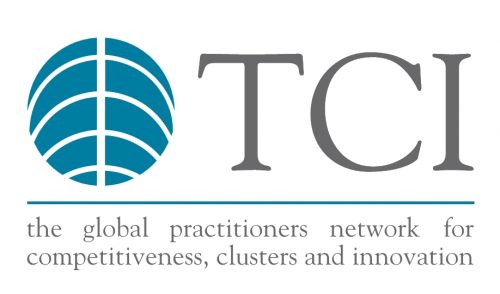
19/10/2016
Christian Ketels: “Thanks to clusters, Catalonia is much more attractive to foreign companies”
Christian Ketels: “Thanks to clusters, Catalonia is much more attractive to foreign companies”
Specialist in cluster policy Christian Ketels joined the 9th annual Catalan clusters meeting hold last month in Barcelona. In an interview with the Catalonia Trade & Investment public agency that works to attract foreign direct investment, he explained the importance of cluster policy in the attractiveness of the region.
Christian Ketels comes from the Institute for Strategy and Competitiveness (Harvard Business School) and is the President of TCI Network, a global platform of experts and organizations on clusters, innovation and competitiveness headquartered in Barcelona.
According to his definition, a cluster is a hotspot of activity in a certain type of sectors. It combines two aspects: it is a group of related industries -not just one sector- and is geographically concentrated.
In his opinion, Catalonia started with cluster efforts earlier than many other parts of Europe, and is globally seen as one of the leaders in this field. And it is still one of the regions that come up with new approaches, for example on using clusters as a platform for internationalization. Today, with more than 20 years of experience in cluster policy, in Catalonia 30 clusters are home to 1,700 firms, accounting for a turnover of 65 billion euros.
In Christian Ketels opinion, Catalonia actually is much more attractive to foreign companies (6,500 are currently set up in Catalonia) thanks to its clusters because they immediately get into an ecosystem of partners rather than just a greenfield site to invest in.
Christian Ketels comes from the Institute for Strategy and Competitiveness (Harvard Business School) and is the President of TCI Network, a global platform of experts and organizations on clusters, innovation and competitiveness headquartered in Barcelona.
According to his definition, a cluster is a hotspot of activity in a certain type of sectors. It combines two aspects: it is a group of related industries -not just one sector- and is geographically concentrated.
In his opinion, Catalonia started with cluster efforts earlier than many other parts of Europe, and is globally seen as one of the leaders in this field. And it is still one of the regions that come up with new approaches, for example on using clusters as a platform for internationalization. Today, with more than 20 years of experience in cluster policy, in Catalonia 30 clusters are home to 1,700 firms, accounting for a turnover of 65 billion euros.
In Christian Ketels opinion, Catalonia actually is much more attractive to foreign companies (6,500 are currently set up in Catalonia) thanks to its clusters because they immediately get into an ecosystem of partners rather than just a greenfield site to invest in.
More news
14/12/2018
The Open Innovation Forum matches business challenges to academic solutions
07/12/2018
2017 BioCat report: The best of the Bioregion of Catalonia
30/11/2018
Barcelona Synchrotron Park’s Commitment to Sustainable Growth
23/11/2018
Astronomers led by IEEC reveal a cold super-Earth around Barnard’s star
16/11/2018
CRAG’s Researchers discover how to generate plants with enhanced drought resistance
08/11/2018
The Barcelona manifesto: for a city-led science and technology diplomacy









